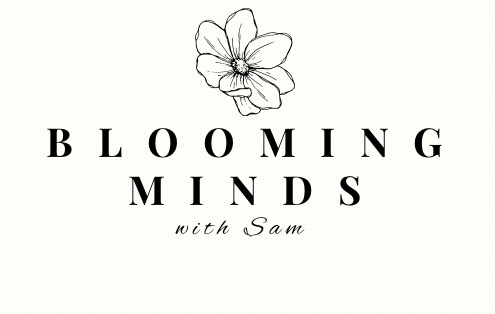When we are in a situation that may be uncomfortable to us, new, scary, or just different, sometimes we think in negative or unhealthy ways. As previously mentioned in one of my other blog posts, as humans, we have automatic thoughts. We usually don't even notice when they happen because they are, well, automatic. And sometimes, automatic thoughts can be toxic or just negative. A difficult situation occurs, like maybe our car won't start and our first thought is "Oh no, this is TERRIBLE." Then it starts spiraling to other thoughts like, "Now I'm going to be late for work" and "My boss won't understand" and "This is going to cost me a fortune" and so on and so on. This happens to all of us of course, but maybe it happens more than it should. It could be happening so often, where we need to take a moment to rationalize, stop and think, and say "Okay, hold up. This is out of my control and I'm just going to do the best I can and deal with it". It's hard to take a step back from the situation in front of you and just.. breathe.
There are all types of different "limited thinking". Limited thinking is basically just different thinking patterns that come with your "automatic thoughts". I thought it might be helpful to write them out for you so you can better understand how you react to different situations. Maybe there's a pattern of thinking you use very often; more than any other kind of pattern, although all of them are very common. Once you recognize a certain pattern of limited thinking, this is the first step to being able to change these patterns. This is what CBT (Cognitive Behavioral Therapy) is all about; understanding how you think and changing your negative thought patterns.
But remember, it's perfectly normal to have these types of thinking patterns because we are all human. If you are having excessive limited thinking patterns like these, this is just a good and informational way to analyze them and rationalize to yourself why you think certain ways and maybe work on changing them.
Types of Limited Thinking Patterns:
- Filtering: Seeing only one element in a situation. You may only see the bad and not the good, or you may just not see any positives.
- Polarized thinking: "Black and white" thinking. An example being; people are either all good or all bad. Another example would be; if you aren't making at least 100k a year, you're a complete failure. (Which of course isn't true.)
- Overgeneralization: Making broad conclusions on a piece of evidence you have or due to a single incident. This type of thinking usually uses words like "always", "never", "no one", "all", "every", etc. Probably a common example some people (and by people I mean women) is "All men are bad. There aren't any good men." Another common example would be applying global labels to people by saying things like, "Every liberal is stupid." Overgeneralizations are common, but they can also be quite toxic.
- Catastrophizing: Your imagination gets the best of you and you think of the worst possible situation. This thinking patterns uses a lot of "What ifs". For example; "What if I break my leg skiing on vacation?" or "What if I never finish my goal?"
- Shoulds: This revolves around having an excessive number of "shoulds" or "shouldn'ts". This is a pattern of thinking that I've heard being talked about a lot recently. I've heard of people referring to it as "Should-ing" on yourself. Kinda funny, but it makes sense. I believe a psychologist came up with this term, but I don't know for sure or else I would give credit. Either way, I didn't come up with the saying. But basically it sounds something like; "I should be more productive". or "I shouldn't have wasted my money on that".
- Mindreading: Assuming one conclusion to a situation is obviously correct and the only one, based on a hunch, intuition or past experience. An example of this would be thinking that your significant other is cheating on you because he hasn't answered your text messages or calls for longer than usual.
- Magnifying: Emphasizing things out of proportion. A minor setback could seem like a huge failure. Words like "impossible" and "overwhelming" are often used.
- Personalization: You feel that the things people say or do is some type of reaction to you; you take it personally. During this type of pattern, you are constantly comparing yourself to others. Who is smarter, or prettier, or more successful, etc.
So, is there a certain pattern of thinking you tend to have more often that others? Is there a certain thought or phrase you say to yourself often that comes to mind when reading these thinking patterns? There is absolutely nothing wrong with identifying with any of these. I would say basically everyone can, but honestly, EVERYONE can. At some point, we have all experienced one of these.
If you'd like to fill out a sheet to help identify your thinking patterns, I've created one here for you to use. You can print it out if you like or just write down the prompts on your own sheet of paper.
Have a wonderful day!
- Sam Carosella, LCSW

